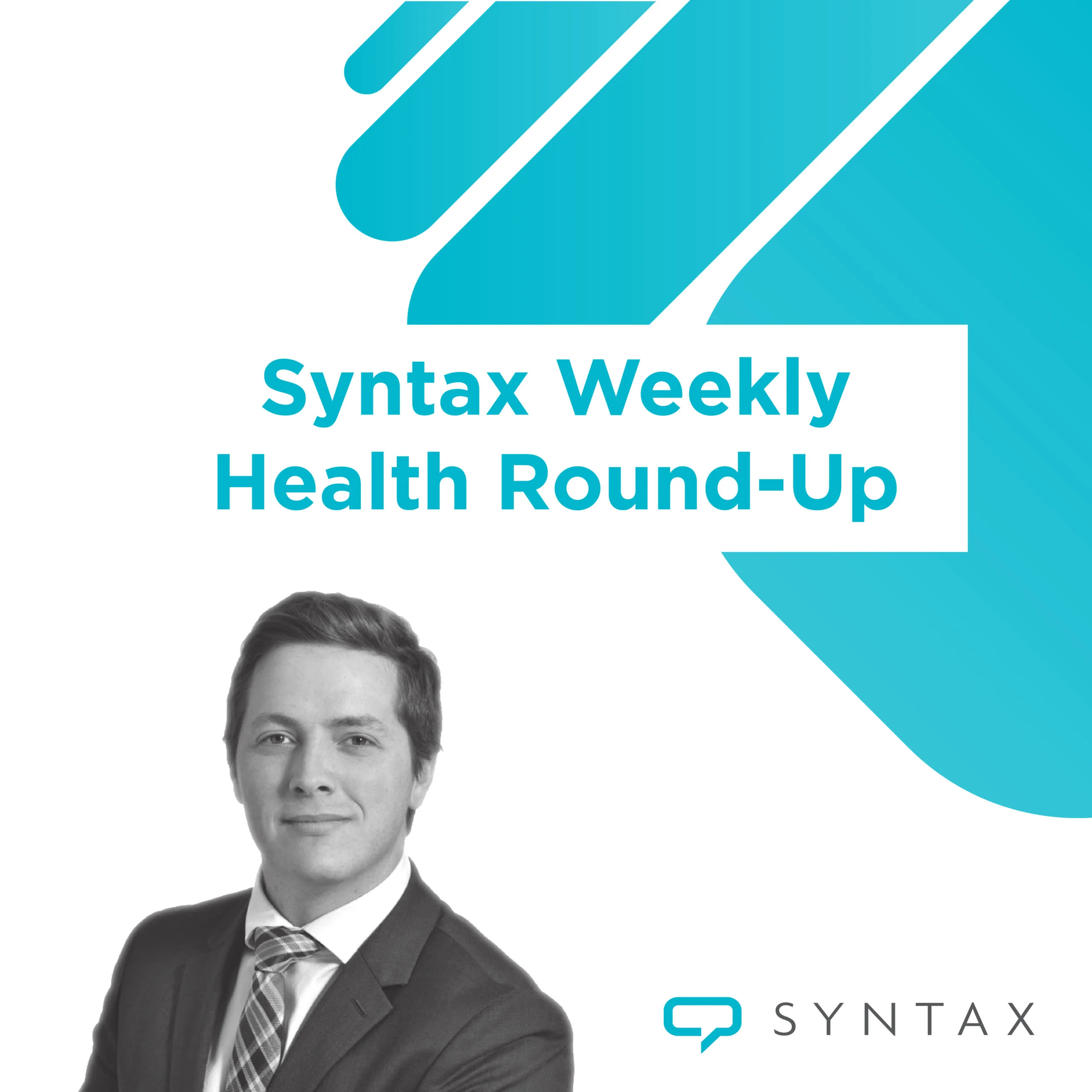Insights | Blog
Feds Ink Bilateral Agreements With PEI and Alberta
The federal government enters into bilateral agreements with PEI and Alberta under the Canada Health Transfer. On that, and more, here is your Syntax Weekly Health Round-Up.
On the Hill
- The House of Commons is on its holiday break until January 29, 2024. In the new year, expect legislation to advance pharmacare.
Around Government
- Dr. Theresa Tam and Dr. Yves Léger, co-chairs of the federal, provincial, and territorial Special Advisory Committee on the Epidemic of Opioid Overdoses, and Minister of Mental Health and Addictions Ya’ara Saks each responded to the release of the latest monitoring data on opioid- and stimulant-related harms in Canada. Drs. Tam and Léger noted that the 3,970 opioid-related deaths and nearly 40,000 hospitalizations for opioid-related poisonings amount to the highest numbers reported in the first half of a year since surveillance began in 2016 and suggested that a comprehensive and collaborative approach is required to reduce harm and save lives. For her part, Minister Saks underscored the tragic loss of over 40,000 lives to opioids since 2016 and underscored the need for a comprehensive and compassionate approach to address the issue and achieve better public health and public safety outcomes.
- Taking the next step toward implementing a national pharmacare program, Minister of Health Mark Holland announced the long-anticipated creation of the Canada Drug Agency (CDA), which will be tasked with providing the dedicated leadership and coordination needed to make Canada’s drug system more sustainable and better prepared for the future. The CDA will be built from the existing Canadian Agency for Drugs and Technologies in Health, and it will be supported by an initial investment of $89.5 million over five years, in addition to the existing federal funding of $34.2 million provided annually to support CADTH. The CDA will build on CADTH’s existing mandate and functions.
Around the Dominion
- The Government of PEI and the federal government signed a $94-million bilateral agreement under the recently re-negotiated Canada Health Transfer. To achieve the deal, PEI tabled a three-year action plan to make improvements to its healthcare system by 2026, including building 16 new patient medical homes, developing a plan for the recruitment of internationally trained health workers, and expanding access to the province’s mobile mental health units. Progress on these initiatives and broader commitments will be measured against targets PEI will publicly report on annually.
- Still in PEI, the province published a five-year health plan aimed at setting a vision and a path for the PEI healthcare system. The plan is based on four priorities: keeping the Island healthy; facilitating a seamless experience; ensuring equitable access; and having a healthy and sustainable workforce. The province also released a 2023-2024 Health and Wellness Business plan which provides a summary of the action items for this year, including expansion of the provincial formulary, expanding the workforce by creating new categories of healthcare providers, and implementing medical homes across the province.
- The Government of Alberta and the federal government signed a $1.06-billion bilateral agreement under the recently re-negotiated Canada Health Transfer. Under the three-year deal, Alberta has committed to increasing access to primary care providers, expanding integrated services for youth mental health services, ensuring that First Nations and Métis people have access to high-quality, culturally safe care that meets their unique health needs, and improving access to healthcare for underserved Albertans, including through expanded community pilots in priority communities (rural, remote, and Indigenous communities).
There will be no round-up next week as we all enjoy some downtime during the holidays.
See you again on Friday, January 5!


